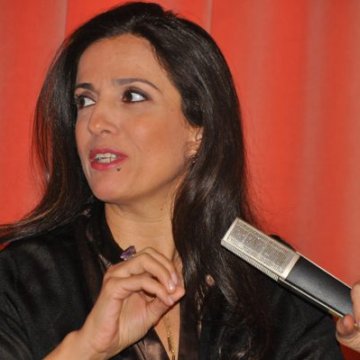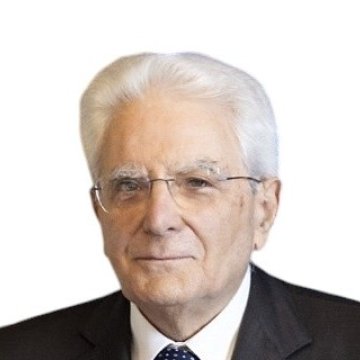Publications
IEP@BU Publication Policy
The Institute for European Policymaking (IEP@BU) publishes a range of content formats to advance rigorous, policy-relevant research and foster informed public debate on European affairs. Our publications—authored by IEP fellows, affiliated researchers, and external contributors—reflect the Institute’s commitment to analytical depth, relevance, and independence.
Types of Publications
● IEP produces and disseminates the following categories of content:
● Commentaries (max. 900 words): Short opinion pieces on timely policy debates, published under the responsibility of the Director and Communications Advisor.
● Interviews with policymakers, scholars, and thought leaders.
● Event-related content: Includes event presentations, slide decks, and videos
● Policy Briefs: Policy-oriented documents comprising an executive summary and a full-length PDF, offering actionable insights and recommendations.
● Working Papers: Original research products developed within IEP-supervised or funded projects.
● Co-authored Reports: Collaborative publications with external institutions on major policy issues.
Approval and Editorial Process
IEP’s editorial process balances academic freedom with internal quality control. The following procedures apply:
● Commentaries, interviews, and event-related content are reviewed by the Director with the support of the Communications Advisor.
● Policy Briefs and Working Papers: The Director approves the publication after an internal review process that includes soliciting feedback and comments from the full Managing Board, and occasionally from IEP fellows with subject-matter expertise.
● Reports are long-term projects pre-approved by the Managing Board and supervised by the Director or another Board member throughout their development.
Definitions
● A Working Paper is a research product that originates from a project initiated, funded, or supervised by IEP. It reflects IEP authorship and resource investment, and typically includes at least one internal presentation to the IEP community during its development or prior to publication.
● A Policy Brief is a concise, policy-focused publication designed to inform public discussion or decision-making. It includes a stand-alone executive summary and a full document in PDF format. Policy Briefs may be discussed in digital or hybrid events, either before or after publication.
● A Report is a digital publication co-authored by IEP fellows and members of other research institutions. Reports address major issues in the European policy debate that require a comprehensive approach, and they offer a broad set of policy recommendations.
If you want to submit a commentary or a proposal for a Policy Brief or other projects, please write to iep@unibocconi.it
2026

If Europe embraces the opportunity to invest in defence and innovation, it can strengthen its position within the global order. A Policy Brief by Carlo Altomonte and Walter Rauti
2025

Europe is aging rapidly as longer life expectancy and persistently low fertility reshape its demographic structure, challenging welfare systems, labor markets, and intergenerational solidarity. France, Germany, and Italy face this shift differently due to distinct patterns in fertility, migration, and population aging. Yet longer, healthier lives are also creating a “second adulthood” and expanding the Silver Economy, generating new economic opportunities. How these countries adapt will determine whether aging becomes a source of resilience and shared progress or a constraint on growth.

On 20 October 2025, Bocconi University hosted the event “The EU’s Anti-Poverty Strategy: Evaluation and Next Steps”, jointly organized with European Commission’s Directorate-General for Employment, Social Affairs and Inclusion (DG EMPL). This policy brief collects and synthesizes the main materials from the event. Prepared by Pietro Galeone and Federica Maria Raiti.
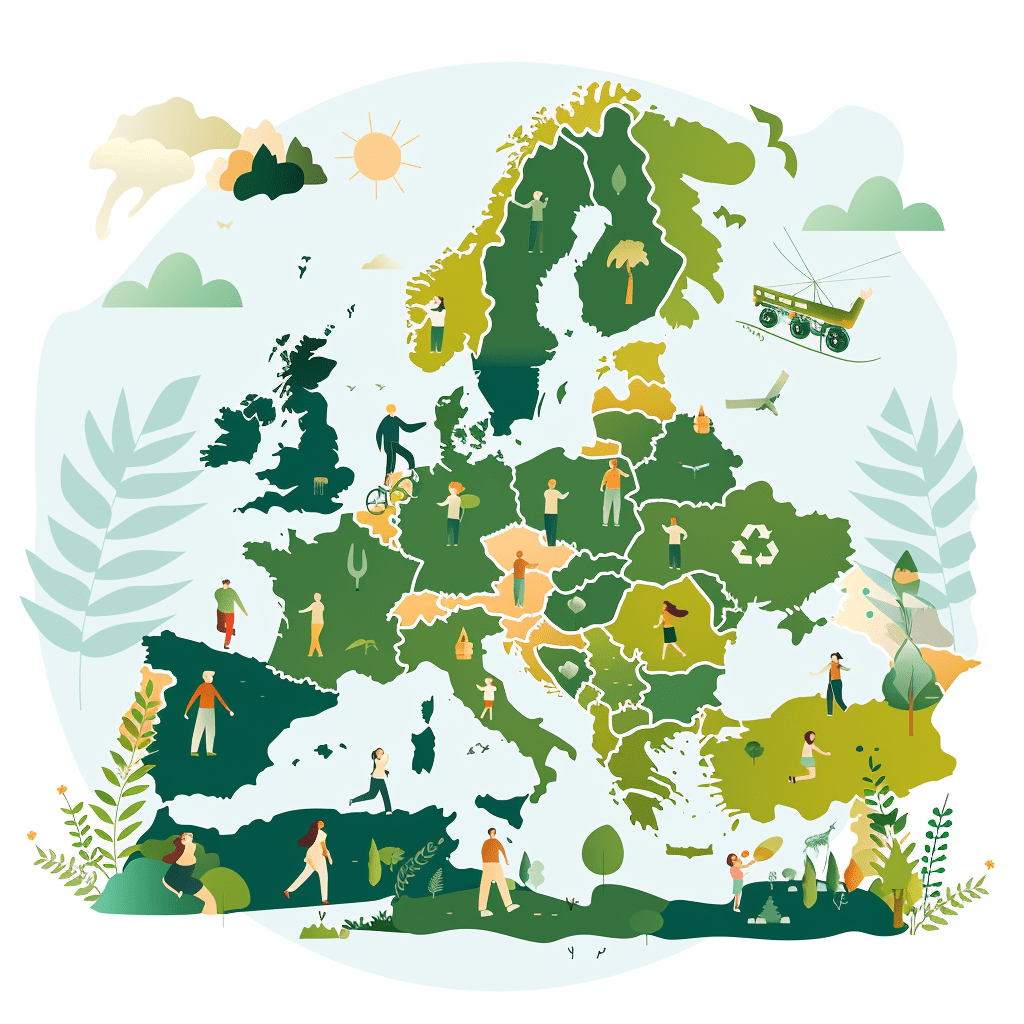
Our own simulations indicate that global solidarity levies implemented worldwide on maritime shipping and aviation could raise significant revenues. A Policy Brief by Luiz Awazu Pereira da Silva, J. Christopher Proctor, Mathilde Salin, Romain Svartzman, Morgan Després, Pascal Saint-Amans

Developing countries often lack access to the capital needed to fund their low-carbon transition. The ability to find solutions to increase financial flows towards them will be – once again – a decisive element guaranteeing success or failure of COP30. A commentary by Joseph Christopher Proctor, and Romain Svartzman

Competitiveness has returned to the top of the EU agenda, with the EU Competitiveness Compass highlighting the need for innovation-driven growth. But European industry has fallen behind in innovation by specializing in mid-tech industries, now increasingly subject to Chinese competition.
Since the start of Horizon 2020, the EU budget has provided about €100 billion to support research and innovation. But this seems to have had little impact.
A large proportion of Horizon funding has gone to a small number of big corporations with modest innovation and growth performance. Another sizable share goes to SMEs that are part of wider corporate groups.
Moreover, the lion’s share of Horizon funding has gone to collaborative programs, with detailed guidelines on research topics and expected outcomes, typically involving broad-based consortia with more than 20 participants. Yet our analysis suggests that bottom-up programs undertaken by individual recipients yield better results, but only if the recipients are independent SMEs.
Any new Framework Program should thus focus on funding ideas, not companies. They key is not more money, but rather leaving space for disruptive innovation by encouraging bottom-up initiatives, especially by small independent companies.
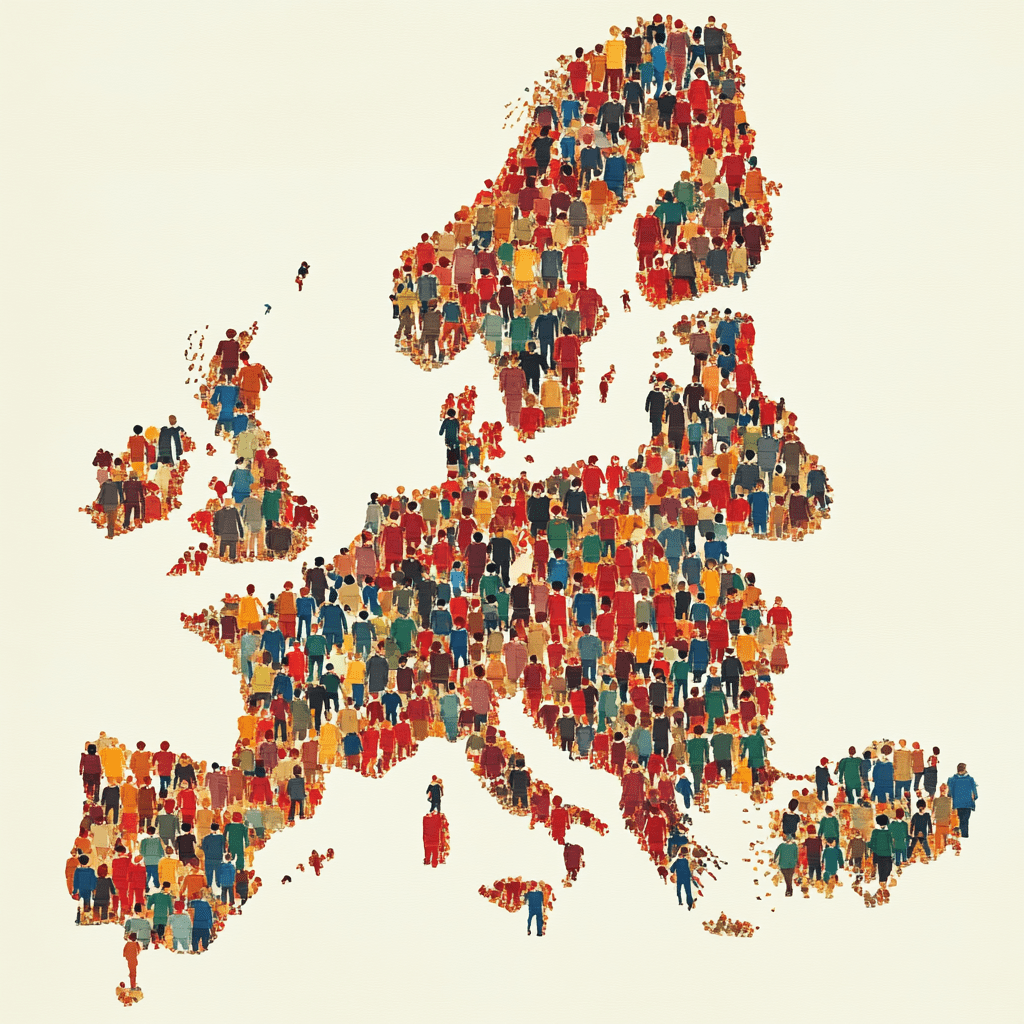
At the European Commission level, the diffusion of responsibility in matters of demography creates both challenges and opportunities for policymaking: while it risks fragmentation, it also opens the door to a more integrated and coordinated approach. A Policy Brief by Arnstein Assve, and Elisa Latora.
A report requested by the European Parliament's Committee on Economic and Monetary Affairs. By Ignazio Angeloni, and Cédric Tille

Diluting reporting obligations risks creating uncertainty, weakening Europe’s competitive edge in green innovation, and sending conflicting signals to companies and financial institutions that have already invested heavily in compliance. A Policy Brief by Sylvie Goulard, and Keraron Aure
Over 93 million people in the EU remain at risk of poverty or social exclusion in 2024, underscoring the urgent need for stronger social protection. While minimum income schemes remain a vital tool in combating poverty, significant reforms are needed to ensure they fulfil their intended role effectively.
A preliminary legal analysis of the proposal for a European Debt Agency (EDA). EDA represents a ground-breaking initiative to address the complex challenges of sovereign debt management within the European Union. A Working Paper by Rosalba Famà, and Maria Antonia Panascì

At the June 1985 European Council meeting, in Milan, the diverging views about the future of Europe – its identity as a common trading area or as a more cohesive bloc – were bound to clash strongly, given the fact that the meeting was intended to consider various proposals for the reform of the European institutions. A paper by Andrea Colli

By changing the rules before the actual impact of the 2025 penalties could be assessed, the European Parliament has undermined the very mechanism the EU had in place to foster innovation and competitiveness within the EU auto industry. A commentary by Rachele Cavara, and Francesco Zirpoli
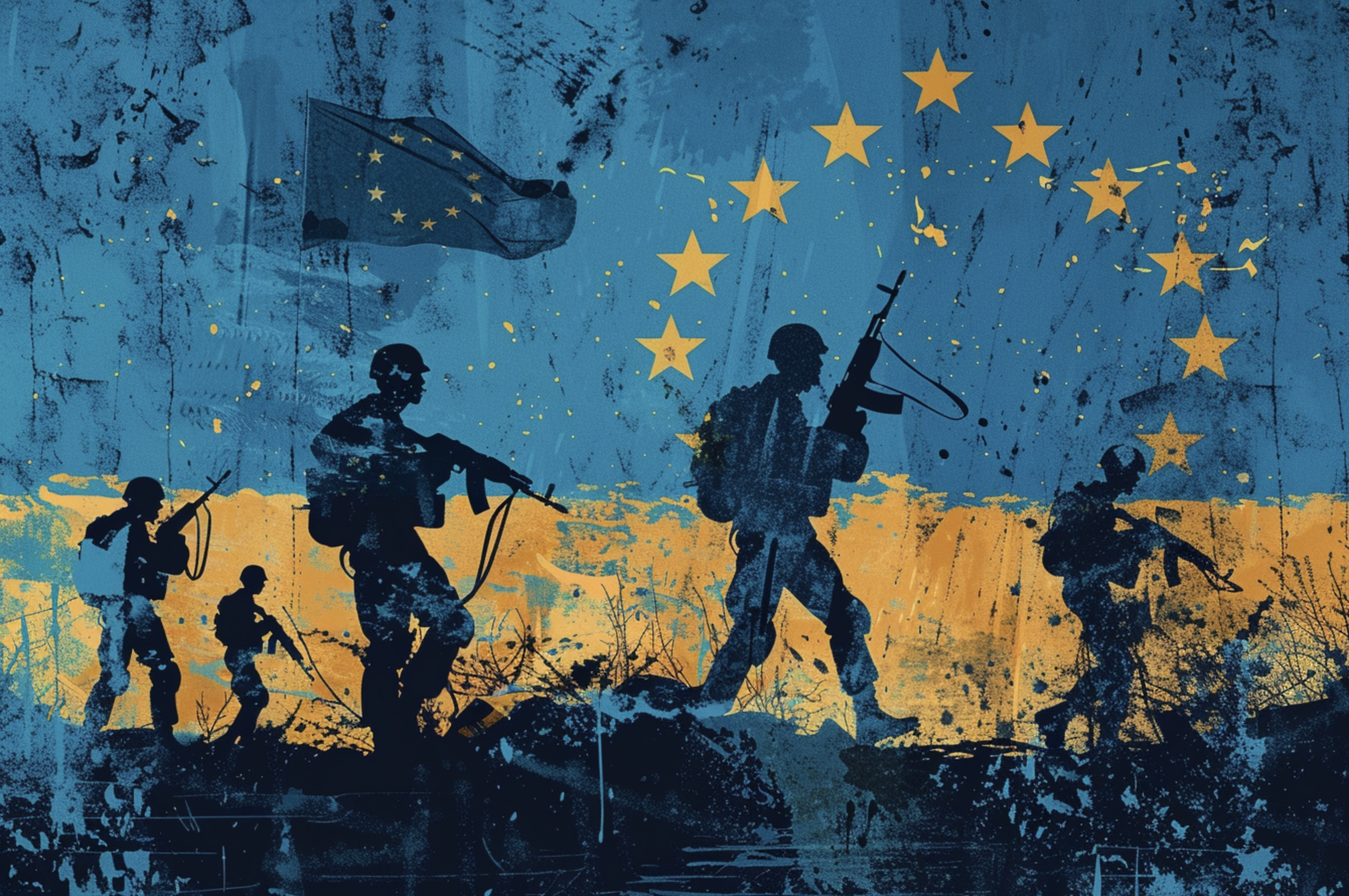
To restart growth, the EU needs to focus on productivity and innovation. This does not require hundreds of billions of euros in new expenditure, but rather a sharp focus on the efficiency of existing budgets coupled with innovation-friendly rulemaking. A Policy Brief by Daniel Gros, and Jacob Funk Kirkegaard

Direct public subsidies to Chinese BEV producers in the forms of grants and tax breaks are relatively small. The Commission motivates a large part of the countervailing duties (CVD) with the argument that entire markets in China are so distorted by industrial policies that the Chinese BEV producers do not face market prices for credit and batteries. A Policy Brief by Daniel Gros, and Weinian Hu
Is the world de-globalizing? Is the global economy fragmenting along geopolitical lines? This article provides an overview of the available empirical evidence on de-globalization and fragmentation. A working paper by Italo Colantone

While economic theory and empirical evidence on human capital affirm the positive effects of education and training on productivity and economic growth, there is a tendency to treat skills enhancement as a universal remedy for labor market inefficiencies. A Policy Brief by Pietro Galeone

European countries should plan for a Peace Enforcement mission and prepare for either Non-Combat Security Assistance and Support or for Mobile Rapid Reaction Force in order to be prepared for a “what if conflict resumes”. A Policy Brief by Andrea Gilli, Mauro Gilli, and Niccolò Petrelli

A recently published report by the Institute for European Policymaking, written by a multidisciplinary team of researchers at Bocconi University and the Toulouse School of Economics, provides timely insights into these challenges and offers concrete policy recommendations across three critical areas
2024

In a nutshell, we see that 80 years of prime partnership have created a solid base of mutual appreciation and similar sensitivities. Europeans and Americans still see in the other their most valuable ally, NATO is highly regarded and cooperation trumps competition. However, eight years of American hyper-polarisation at home and mixed messaging abroad have taken their toll. In 2024, 63 percent of Europeans agree that it is time for Europe to go its own way.

Lack of integration of capital markets is a major source of weakness and declining competitiveness of the European economy. While efforts to complete harmonization of capital market legislation in this domain should retain highest priority in the new Commission’s work programme, there is room to advance integration by exploiting the STS regulation introduced by the EU in 2017 as part of its broader efforts to implement the CMU.
The main finding is that at the peak of the latest tightening cycle, the ECB monetary policy stance was no more restrictive than it was at the peak of the two preceding ones; actually, probably less. Report Co-ordinator Francesco Decarolis.

“The Commission would like to be taking the lead on defense policy, but defense remains the domain of Member States”. Thomas Gomart is one of the most influential experts on foreign relations and geopolitics at the EU level: he has been director of the Ifri, Institute Francais de Relationes Internationales, since 2015. An expert in Russian geopolitics and the history of international relations, he has recently published the book L'accélération de l'histoire. Les noeuds géostratégiques d'un monde hors de contrôle ( Éditions Tallandier, 2024).

The first elected president of the European Council, Herman van Rompuy, discusses how to fix the decision-making process at the EU level

On 16 October 2024, Claudia Buch delivered a lecture titled Bank Profitability: A Mirror of the Past, Creating a Vision for the Future at Bocconi University. The event was co-organized by the Baffi Center on Economics, Finance, and Regulation and the Institute for European Policymaking @ Bocconi University (IEP@BU).

Building on a previous analysis of the trends of convergence and divergence between peripheral and core EA-12 countries after the euro area sovereign debt crisis (Bordignon et al., 2023), this work investigates the long-term evolution of such differences in economic, institutional, and political outcomes, testing whether a pattern of convergence was finally resumed and comparing the effects of this crisis with those induced by the Covid-19 pandemic.


On September 19, mister Roth gave a lecture to Bocconi students titled “Europe at the Crossroads: Turning Today’s Poly-Crisis Into Tomorrow’s Poly-Opportunity”. Eleanor Spaventa, a professor of European Law at Bocconi and a member of the IEP@BU managing board, chaired the event co-hosted by IEP@BU and the Department of Legal Studies.

While the focus of the new Commission will be crystallizing over the months and years to come, this short analysis of the mission letters for the future Commissioners suggests that the recent intervention of Mario Draghi on Europe’s competitiveness has been agenda-setting for the policy priorities as defined by Commission President Ursula von der Leyen.

The economic transformation required to reach global net zero goals relies on the mining and transformation of certain minerals and metals for the production of low-carbon technologies. Increasing global demand for these critical materials, combined with their uneven geographical distribution, raise potential supply issues that pose economic security and transition risks for the European Union. This report sets out the nature of the challenge, the policy responses and ways forward for the bloc.

The September 2024 state elections in Germany mark a low point in public support for the governing left-wing coalition and a high point for the populist right. Often overlooked, the elections might also mark the fading of the German socialist party Die Linke into political irrelevance. Its demise teaches us valuable lessons for modern European politics
The fight against poverty is not a new one. It has been a feature of national policies and academic research for many decades. However, the ways in which a State fights against poverty have changed over time, continuously evolving to approach new challenges through the adoption of new tools and policies.

The report on The Future of European Competitiveness presented by Mario Draghi provides a clarion call for economic reforms to stop Europe’s relative decline. This short comment cannot do justice to the report with over 300 pages of supporting material. We will concentrate just on two key messages regarding innovation and investment.

As Europe begins to face the start of its own relationship with fentanyl, it is paramount that policymakers learn from the lessons of American and Australia in crafting their response. Policymakers need to bear in mind that drug users are consumers who will respond to the changing economic environment wrought by their efforts.
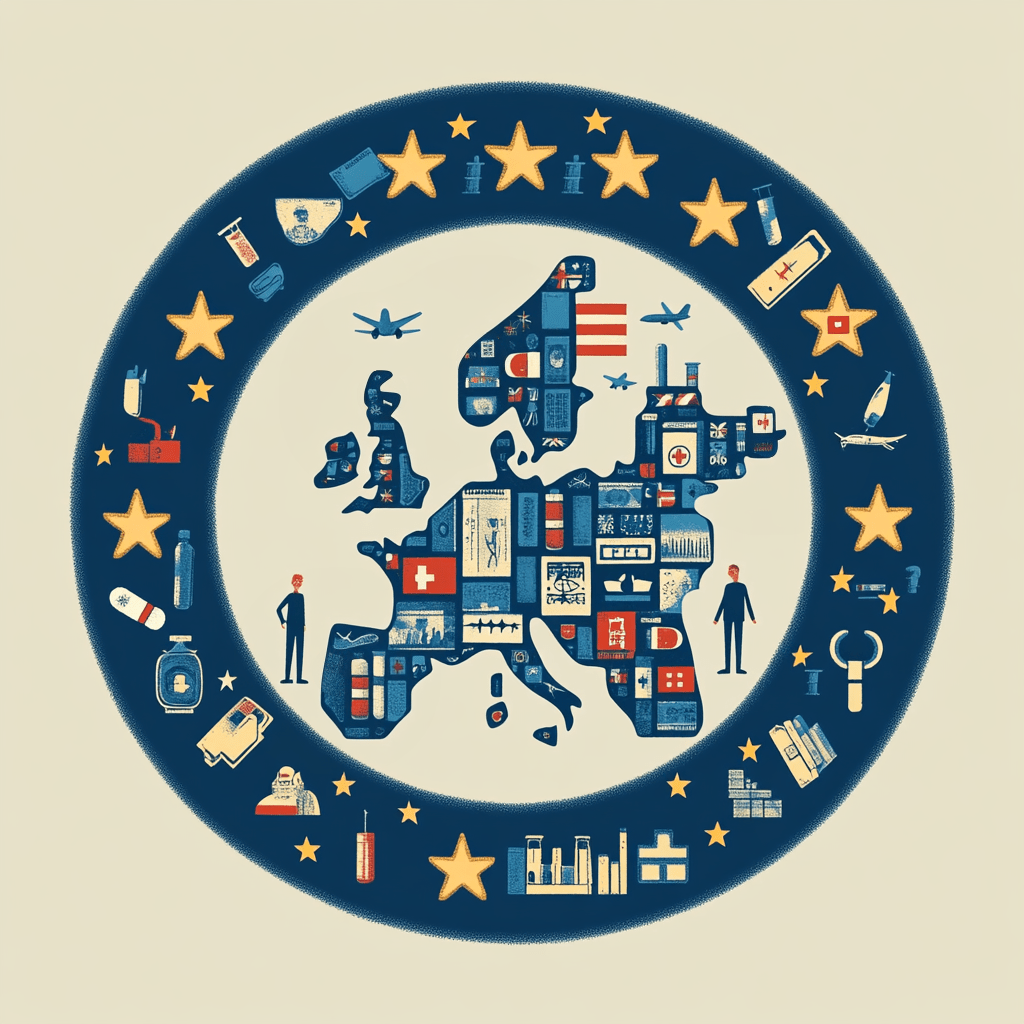
The mobile telecom sector is often taken as a case study of fragmentation of the single market leading to less investment and a loss of technological leadership. However, a closer examination of the data suggests that the fragmentation also implies more competition leading to lower prices for consumers in Europe.

A popular thesis in policy circles is that there is an “investment gap” that Europe needs to fill to face the great challenges of our times, such as the digital and green transitions. However, the notion of the “investment gap” used by policymakers is often vague and therefore it risks legitimate a wasteful allocation of public resources.

After revisiting the pros and cons, this paper concludes that, all in all, the rationale for introducing an ECB-sponsored digital euro for citizens, retailers, and producers, is not solidly established. Today’s highly dynamic, innovative, and efficient digital payment ecosystem does not require such an instrument, which would unavoidably duplicate existing applications and probably struggle to match private innovation.

If Trump is elected in November 2024, the security outlook of Europe could deteriorate very fast as Russia may attempt to seek the opportunity of taking NATO off balance. It is therefore essential that the Commission and the forthcoming Defence Commissioner begin the policy planning and design well in advance and preferably as soon as they take office, as to move past preliminary negotiations and have blueprints ready for approval should the situation require it.

There are lessons to be learned by comparing the most recent elections in France and the UK. The French electoral system is characterized by two-turn constituency elections where several short-listed candidates qualify for a second round should no-one reach more than 50% of the votes in the first round. The British system, conversely, assigns a given constituency seat to whoever wins the plurality in a given constituency, regardless of whether or not the candidate reaches 50%.

While defense procurement and production remain fragmented across Europe and the EU and its member states invest less in their security and defense than the US, new EU and EU-sponsored initiatives demonstrate that Europeans are aware of this and attempt to reduce these shortcomings – political and fiscal obstacles notwithstanding.

A key area of frustration for voters on both the left and the right is the poor performance of the NHS. With ever-longer waiting lists for hospital appointments and declining local services, voters are deeply concerned about the state of their beloved health service.

Defense expenditure in EU members rose by 50% (net of inflation) between 2015 and 2023, with an increase in the expenditure-to-GDP ratio (Figure 2, referring to the current EU members). The increase involved all EU members, including not NATO members during the period under consideration.

The European Sovereign Bond market gyrations erupted in the wake of President Emmanuel Macron’s call for a snap parliamentary vote after his party’s defeat to Marine Le Pen’s National Rally in the European elections have sparked a debate on the opportunity of an activation of the Transmission Protection Mechanism (TPI).

It is therefore possible that even the election of the Commission President will not change the overall picture, with the real game taking place whenever the European Parliament is called to vote on the fundamental choices that Europe will face in the coming years, from managing the digital and green transitions to fundamental decisions on the common defense and security policies.

In our first forecast for the EP 2024 elections based on our model, in January 2024, we predicted a “sharp right turn”. In our latest forecast, and our final one before the election, we are still forecasting that the next EP will be considerably more right-leaning than the current one, and that the two groups to the right of the EPP will be considerably larger than they currently are.

ASML has a global monopoly on EUV, the most advanced lithography technology that is on the Wassenaar Arrangement list of dual-use technologies and requires an export license. The Dutch government approved the export license of EUV-technology to China in 2018. The US government was not pleased and tried to press its ally to consider the security issues.

These findings stem from a survey conducted in December 2023, encompassing nearly 13,000 EU citizens. Our dataset is representative of the EU as a whole and, more specifically, of Belgium, France, Germany, Italy, the Netherlands, Poland, and Spain. In Italy, we interviewed 1,325 citizens.

The EU is encouraging other countries to follow its lead and support the green transition. This requires massive subsidies in many different sectors. Why should the EU then complain if other countries outcompete it in terms of subsidizing the production of green goods?

With many new restrictive measures in place one would have expected trade to fall. However, the most one can say is that globalisation has turned into slowbalisation.

Elisabeth Braw, a widely respected expert in international relations and security, is currently a senior fellow at the Atlantic Council, a think tank based in Washington, D.C. Before transitioning to research, she was a journalist, a background that informed her recent book published by Yale University Press, titled Goodbye Globalization: The Return of a Divided World.

European automakers currently face increasing pressures. While the region’s manufacturers long dominated global sales revenues, several competitors from Asia have recently moved into the top ten. But European companies have faced similar difficulties before, and the responses of the region’s automakers and policymakers to previous challenges offer insight for the present, especially on the issues of global competition and energy transition.

It is now over two years since Russia launched its brutal full-scale invasion of Ukraine. Ever since those early days, a broad network of CEPR economists has been working intensively with colleagues in Ukraine and across the international research and policy communities to explore how to tackle the big economic challenges of the war and how to plan for the country’s post-war reconstruction.

It is often assumed that Germany’s economic relations with China are so important that Berlin tends to take a softer stance on China-EU relations than its EU partners – or at least that this used to be the case until most recently. In particular, it is feared that German industry might be more vulnerable to disruptions of the supply of Chinese inputs than other European countries. However, this impression of a greater dependency of German industry and its supply chains from China is not borne out by the data.

Through its missions and governance, Horizon Europe does not meet the innovation challenge and anchors our industry in the mid-tech range. This report argues that current European efforts, while laudable, are insufficient, in both quantity and quality. Important reforms are required to enable Europe to compete in the value-creating space.

The concept of green backlash has recently become more salient in the news, in part due to the widespread farmers’ protests held in a number of European countries. However, there is so far not much robust empirical evidence of an electoral penalty against governments that implement ambitious climate policies.

This paper shows that the current operational framework of monetary policy relying on excess liquidity, together with a high level of interest rates, produces a remarkable redistribution of interest payments across the national central banks of the Eurosystem, due to the rules governing the pooling of monetary income among them. This mechanism implies significant fiscal transfers across the member countries of the euro area. Our estimates for 2023 show that their size can be in the order of several billion euro.

The polls for the forthcoming European Parliament elections indicate a further surge of the radical and/or sovereigntist right. This result might destabilize again traditional partisan and inter-institutional equilibria and weaken the support to EU authority at a time when serious challenges and difficult choices loom large. Does the EU risk plunging back into an “existential crisis”, as it happened a decade ago in the aftermath of the 2014 elections?

This policy brief highlights that while the green subsidies provided by the Inflation Reduction Act of the United States are homogeneous across beneficiaries, the subsidies associated with the Green Deal industrial plan are highly fragmented across European member States. We quantify the extent of resource misallocation due to this subsidy dispersion by using the model of Hsieh and Klenow (2009), calibrated on the EU electricity-producing industry. We compare both the actual allocation of subsidies, and a policy of subsidies coordinated at the EU level, to a hypothetical frictionless benchmark with no subsidies. We find that moving to coordinated subsidies can increase productivity by more than 30% with respect to the uncoordinated scenario, substantially reduce the productivity gap with the United States, and generate gains worth up to 6% of the EU value-added in the industries considered. Policy recommendations include greater EU-level coordination to minimize misallocation and enhance productivity.

The EU-sponsored Eurobarometer polls routinely estimate support for EU defence integration between 70% and 80% of respondents, while a recent poll by the independent Bertelsmann Stiftung polling branch, Euopinions, returned a 87% support level. However, the devil is in the details: what is meant by “European defence policy” can wildly differ between people, and these simple questions present no trade-offs.

The pattern of macroeconomic catch-up seen in the EU’s enlargement process is a remarkably positive story - if largely unsung and still incomplete. The catch-up achieved so far constitutes a key backdrop to today’s debate about further enlargement. Without the rapid growth of the most recently acceding states it would be impossible for the EU to contemplate taking further poor members.

This paper, prepared on a request by the European Parliament, contributes to a reflection aimed at identifying ways to revive and upgrade the banking union, so as to enable it to cope with the major transformational challenges facing Europe as we move forward in the 21st century: Green, Digital, Geo-Strategic and Structural.

The euro area has been subject to a series of very different shocks, some of which, such as the COVID-19 pandemic, were unprecedented. While the ECB’s reaction to these deflationary shocks was vigorous, it persisted too long with its expansionary measures and failed to see their inflationary impact when energy prices shot up. The future is likely to bring new challenges, but climate change might not be the most important threat to price and financial stability.
This document was provided by the Economic Governance and EMU Scrutiny Unit at the request of the Committee on Economic and Monetary Affairs (ECON) ahead of the Monetary Dialogue with the ECB President on 15 February 2024.
2023

On December 200,2023, The European Parliament and the Council agreed on five key proposals of the New Pact on Migration and Asylum proposed by the EU Commission in September 2020 and aimed at creating a uniform system of regulations and policies around migration and asylum for the EU. The main aim of the new pact was to replace the Dublin system which relied heavily on first-country-of-entry criteria creating a burden for frontline member states.

The new framework has a higher degree of built-in flexibility. By tailoring fiscal adjustment to the situation of individual countries, the reform overcomes one major issue with the previous set of rules – namely the excessive use of flexibility clauses and overlays, to soften the otherwise too strict uniform adjustment paths.

The Council and High Representative for foreign Affairs must ensure that Common Foreign and Security Policy do not deprive individuals of their rights, and must, as a matter of EU constitutional law, include in all instruments a jurisdictional clause indicating the national court responsible to ensure effective judicial protection.

Inflation rates in the euro area and US increased sharply in 2022, in part following large energy price shocks. This column analyses the pass-through from energy prices to core inflation since the 1970s for the US and Germany. It shows that this pass-through is not constant over time, but time-varying. Pass-through from energy to inflation during the 1970s was high in the US, but not in Germany. Both countries experienced high pass-through in 2022, but this has declined in the most recent quarters, consistent with a return to more normal inflation dynamics.

As the discussion on the next EU enlargement that might include Ukraine in the bloc proceeds, the support of European citizens to support Ukrainians remains solid but not as solid as in the recent past. Eupinions - a Bertelsman Stigtung project - has monitored how the EU sentiment has evolved towards Ukraine over 18 months.

We identify specific industrial products that are projected to be in high demand in the EU and can be realistically produced given North African countries’ existing capabilities. Specializing in these products, North African countries can diversify their export basket, which has been shown to correlate positively with economic development.

There is no doubt that monetary policy reacted late to the rising inflationary pressures experienced in 2021-22. The major central banks subsequently caught up rapidly and hiked interest rates at an unprecedented pace. However, as inflation reached its peak at the end of 2022 and has been falling since then, central banks may once again be late in adjusting their policies.

The US and the euro area have similar headline inflation rates, but very different drivers. In the US, inflation is mainly driven by housing costs. By contrast in the euro area energy now provides an important negative element, that is offset to a large extent by still increasing food prices

La Nota di aggiornamento del Documento di Economia e Finanza indica che la stabilizzazione del debito pubblico italiano richiede il raggiungimento di un surplus primario superiore al 3% del Pil nel giro dei prossimi 3-4 anni. Una manovra restrittiva di questo tipo non ha precedenti storici.

Ralph Ossa, a professor of Economics at the University of Zurich currently on leave, has been appointed as the WTO chief economist in the most challenging time for the organization. In the first World Trade Report since his appointment, Ralph Ossa and his colleagues challenge the prevalent narrative of an inevitable decline of globalization that we have experienced in the last three decades.

Our starting point was the stark increase in non-energy price inflation, which is the key element for the ECB since monetary policy cannot do anything about energy prices. Could the ECB have foreseen this development? Our analysis suggests that this would have been difficult based on past experience.

Our analysis indicates that the budgetary documents presented by the Italian government are based on excessively optimistic forecasts regarding GDP growth, the effectiveness of budgetary measures and the revenues connected to privatizations. As a result, the very small projected decline in the public debt/GDP ratio is not likely.

La Nota di Aggiornamento del DEF (Nadef) e la bozza della Legge di Bilancio del Governo Meloni indicano obiettivi e programmi di politica economica sulla cui credibilità gravano varie ipoteche. Le difficili condizioni dell’economia internazionale e l’intrinseca debolezza della finanza pubblica italiana possono mettere in questione gli impegni dichiarati dal governo, con implicazioni per la stabilità finanziaria del paese.

As the path to fiscal sustainability narrows, so does Italy’s political capital to credibly advocate a radical reform of EU fiscal rules. Italy's primary balance will need to improve by 0.9% of GDP each year in both 2025 and 2026: similarly sized improvements were recorded in only 3 of the 20 years before the pandemic (2 of which were at the height of the Eurozone crisis, in 2011 and 2012).

Rebuilding trust in the EU would entail the recognition that the winners of yesterday are not the winners of today or tomorrow. In a world of endemic uncertainty and repeated shocks, to avoid zero-sum games, an insurance-based solidarity is needed where support will depend on who suffers more from the shocks.

To understand the feasibility of further integration, we study the extent and evolution of cultural and policy views heterogeneity in Europe leveraging international survey data. We calculate the distribution of cultural and policy views distance both across and within countries. We find that cultural heterogeneity has increased along both dimensions in the past but has decreased in the most recent wave.

Federal Reserve monetary policy has been more expansionary than the one predicted by the rule until the second quarter of 2022, then this tendency was reversed. The evidence is very different for the case of the Euro area, where the observed policy rates are consistently below those predicted by the model and fluctuate outside the range compatible with the model-related uncertainty.

The ratification of the modified ESM treaty by the Greek parliament took place easily, and smoothly, without the usual political tensions. The text was submitted to the plenary on the 28th of June 2021 and a week later, on July 6th, it was adopted by a large majority. Only the Greek Communist Party and minor parties of the extreme left and right voted against it. It was practically a non-issue for the mainstream Greek political parties and Greek citizens. Why so?

L'Inflation Reduction Act (IRA), firmato dal Presidente degli Stati Uniti Joe Biden quasi un anno fa (agosto 2022), è il primo importante provvedimento per contrastare il cambiamento climatico che il parlamento degli Stati Uniti abbia mai approvato. La ragione principale di questo successo è che l’IRA non impone oneri all’industria USA ma garantisce molti sussidi.

Bite-back occurs when an innovation has unexpected and unintended effects. It is probably the case that in most cases such consequences are negative, but that is not invariably the case. Bite-back happens because a new technology is by definition an exploration into the unknown, and so it is impossible to predict precisely whether it will do more or less of just very different things from what it was meant to do.

A detailed analysis suggests that the handicap for European producers in the US market will be limited. This small negative effect is likely to be overwhelmed by the much-increased market, implying that the IRA leads to increased opportunities for exports of electric vehicles and renewable inputs to the US. Our calculations suggest that over time the US market for electric vehicles could increase by a factor of 4 and renewables installations should also increase by hundreds of percent. A commentary by Daniel Gros.
In this Working Document, we do not try to provide an overall evaluation of the IRA or its cost-effectiveness with regard to addressing climate change and US emissions. Rather, we investigate its impact on the US market and on EU export opportunities, concentrating on the material content of the IRA – not its intention.

As a possible reform of its dispute settlement procedures, the WTO membership should consider carving out trade actions taken under the national security exception (GATT Article XXI) as a case where trading partners have the right to bring non-violation claims but do not have the right to bring violation claims.

The proliferation of advanced generative AI models has unequivocally highlighted what was already foreseeable since the advent of the algorithmic era. The traditional notion of "consent" is no longer a viable proposition in the context of an algorithmic society. Given the increasing sophistication of emerging AI generative models, which legal basis could be a reasonable alternative?

The dynamics of nominal government bond yields at different maturities play a central role in shaping the response of the real economy to monetary and fiscal policy interventions. Yields can be decomposed into two unobservable components: the sequence of expected one-period rates and the term-premia.

A concise introduction into the workings of large language models is presented. We start with an introduction to the attention mechanism, the core of the transformer architecture, which is then followed by a discussion of the steps needed to engineer the base model, a generatively pretrained transfromers (GPT), to a working chatbot like ChatGPT.

“You can do some pretty impressive things with AI as a technological platform, but I am not necessarily an optimist because there are also some very negative paths that AI could take as a technology. We have a confluence of factors that make the negative use of this technology much more probable than positive use”, MIT economist Daron Acemoglu argues.

Il dibattito sulla riforma del Meccanismo Europeo di Stabilità (MES) - che l’Italia rimane l’unico Paese UE a non avere ratificato - è tornato al centro del dibattito politico italiano. All’interno della maggioranza di governo sembrano coesistere due linee di opposizione alla ratifica – una “ideologica” e una “strategica”. Entrambe sono fallaci.

